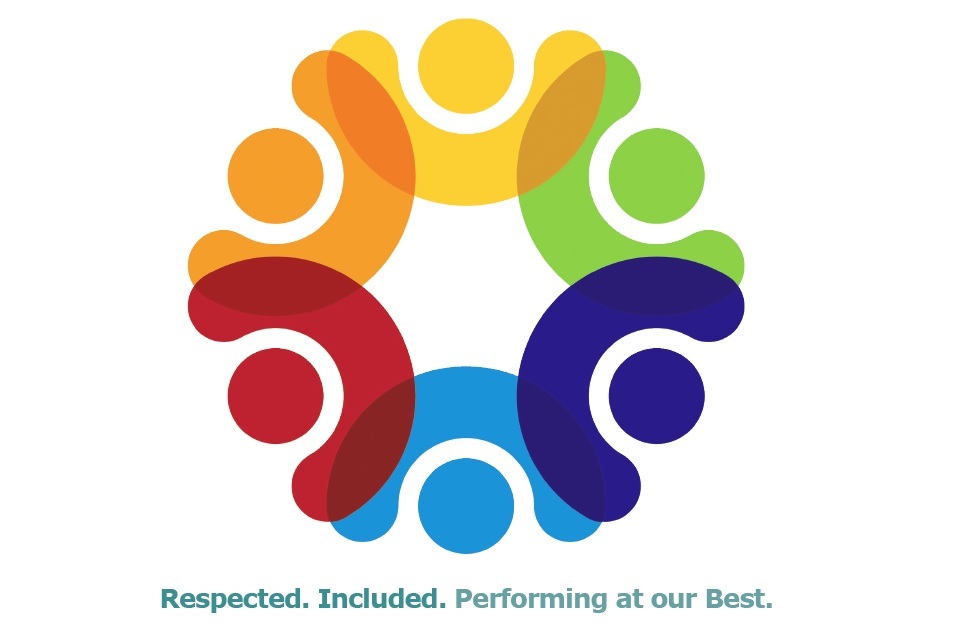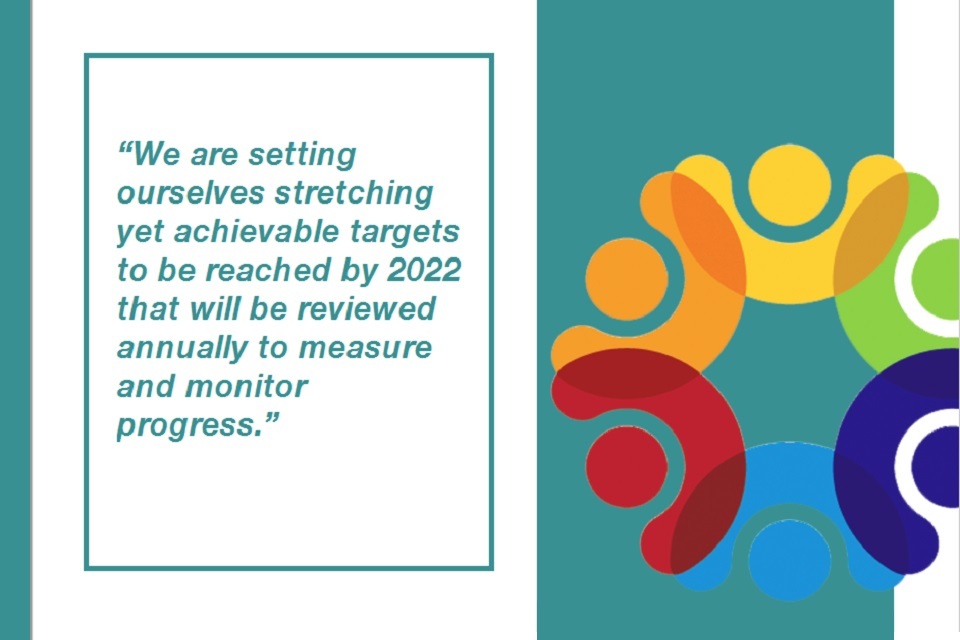NDA Group Equality, Diversity and Inclusion Strategy 2018 to 2020
Published 9 May 2018

Respected Included Performing at our Best
1. Welcome
Cleaning up the UK’s earliest nuclear sites will require the brightest minds and best hands for decades to come. We need to make sure that we can attract and retain talent to meet current and future skills demands and ensure we remain attractive in the market for many years to come.
The evidence on respect and inclusion speaks for itself, as does the experience of businesses across the world. Organisations that take it seriously attract and retain the best people, perform better and ultimately are more successful. So treating everyone equally and with respect and creating an environment where differences of thought and perspectives are encouraged, isn’t just the right thing to do, it’s good for our mission.
Businesses that don’t focus on workplace inclusion will undoubtedly get left behind. The next generation will expect and choose to work for organisations that encourage and embrace differences in backgrounds, opinions and thoughts.
We need to see a step change that puts our organisations and the nuclear decommissioning sector among the best when it comes to inclusive employers.
We spend a lot of time at work. So it is vital that we work in an environment which is safe, secure and free from harassment and bullying. Each one of us has a responsibility to treat others with dignity and respect.
Our recent survey results show that we have some way to go but we know the steps we need to take. This will include embedding a zero tolerance policy to bullying and harassment and creating a culture where everyone feels able to bring new ideas to the table and challenge the status quo.
This ‘Respected. Included. Performing at our Best’ Strategy will play a pivotal role in transitioning our organisations into more respectful and inclusive places to work, and is part and parcel of our wider programmes of transformation.
David Peattie
NDA Chief Executive
What is our goal?
To transform our work environments into places where
everyone is treated with dignity and respect, and where differences in thought and experience are encouraged.
2. What does this strategy aim to do?
This strategy sets the equality, diversity and inclusion aims and areas of focus for the next 4 years to help us:
- transform our businesses into more diverse and inclusive places to work
- encourage diversity of experience and thought
- advance equality of opportunity
3. Who is this strategy for?
This strategy is for all employees, at all levels, wherever they work and whatever they do. For it to be successful, we need to make respect and inclusion an entirely normal part of what we do.
4. What change do we hope to achieve?
We are setting ourselves stretching yet achievable targets to be reached by 2022 that will be reviewed annually to measure and monitor progress.
- 100% employee satisfaction on bullying and harassment
- 75% satisfaction on challenge and innovation
- 60% satisfaction on fairness and meritocracy
5. How will we monitor progress?
The Equality, Diversity and Inclusion Council will monitor delivery against this strategy. Every year we will ask you to tell us how well we are doing against our targets.
“We are setting ourselves stretching yet achievable targets to be reached by 2022 that will be reviewed annually to measure and monitor progress.”

“We are setting ourselves stretching yet achievable targets to be reached by 2022 that will be reviewed annually to measure and monitor progress.”
6. What do we know already?
In 2017 all employees were given the opportunity to take part in a survey, which has given us a comprehensive picture of what we do well and where we need to do much better.
It’s apparent that all our organisations share similar areas for concern.
Far too many of our employees believe that:
- bullying and harassment goes on and is condoned
- there is a lack of fairness and meritocracy
- new ideas and challenging the status quo is discouraged
All of our organisations also share the same aspirations to become ‘mentally healthier’ workplaces, where people feel more comfortable to talk about mental health issues and are supported appropriately. Research confirms that a culture of fear and silence around mental health is costly to employers and bad for employees.
7. What will we do?
- Build a culture of respect and inclusion, where bullying and harassment is not condoned
- Ensure fairness and meritocracy
- Create conditions that encourage diversity of thought and challenging the status quo
- Ensure our leaders are thinking and behaving inclusively
- Establish mentally healthy workplaces
8. How will we do it?
There is a lot we can and must do.
We identified 4 priority areas of focus from the survey data:
- bullying and harassment
- fairness and meritocracy
- challenge and innovation
- leadership
We are also going to actively focus on mental health in the workplace and deepen our understanding of the well-being agenda.
In these areas we will:
- educate, train and challenge ourselves on the standards expected
- actively engage and support our employees
- develop a zero tolerance culture to bullying and harassment
- ensure the right values, policies and procedures are in place and understood
- review and refresh the way in which we recruit, promote and develop people
- promote mental health well-being and support people who experience mental health problems
9. What do we expect of leaders?
Every leader has the responsibility of making our organisations great places to work where colleagues feel able to share their ideas, views and concerns and are supported, trusted, valued and respected.
They must set clear expectations, lead by example and uphold the strongest of standards.
Anyone with line manager responsibilities must:
- treat people with dignity and respect and not discriminate
- promote a culture of respect and inclusion
- implement policy in a fair and equitable way
- make sure any respect and inclusion issues are addressed promptly and appropriately
- support people who are experiencing mental health problems
10. What can we all do?
Employees at all levels will play a pivotal role in transforming our organisations and your participation in this drive for change is crucial.
We are all responsible for leading, contributing and embedding a culture of respect and inclusion.
Each and every one of us must:
- take responsibility for own behaviour
- treat people with respect and dignity and not discriminate
- actively include everyone
- value different views and constructive challenge
- understand and challenge bias
- notify our line managers of any concerns with regard to the conduct of others
- speak to our line managers, one of our leaders, an executive member or a union representative if subject to discrimination, bullying or harassment
